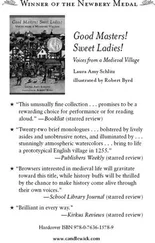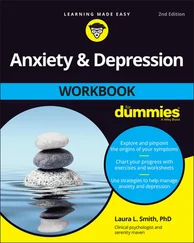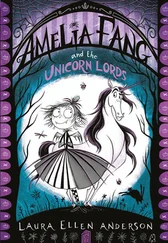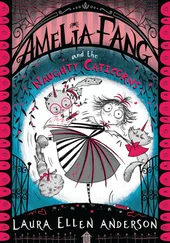Laura Schlitz - Splendors and Glooms
Здесь есть возможность читать онлайн «Laura Schlitz - Splendors and Glooms» весь текст электронной книги совершенно бесплатно (целиком полную версию без сокращений). В некоторых случаях можно слушать аудио, скачать через торрент в формате fb2 и присутствует краткое содержание. Год выпуска: 2012, ISBN: 2012, Издательство: Candlewick Press, Жанр: Старинная литература, на английском языке. Описание произведения, (предисловие) а так же отзывы посетителей доступны на портале библиотеки ЛибКат.
- Название:Splendors and Glooms
- Автор:
- Издательство:Candlewick Press
- Жанр:
- Год:2012
- ISBN:978-0-7636-6246-2
- Рейтинг книги:5 / 5. Голосов: 1
-
Избранное:Добавить в избранное
- Отзывы:
-
Ваша оценка:
- 100
- 1
- 2
- 3
- 4
- 5
Splendors and Glooms: краткое содержание, описание и аннотация
Предлагаем к чтению аннотацию, описание, краткое содержание или предисловие (зависит от того, что написал сам автор книги «Splendors and Glooms»). Если вы не нашли необходимую информацию о книге — напишите в комментариях, мы постараемся отыскать её.
Splendors and Glooms — читать онлайн бесплатно полную книгу (весь текст) целиком
Ниже представлен текст книги, разбитый по страницам. Система сохранения места последней прочитанной страницы, позволяет с удобством читать онлайн бесплатно книгу «Splendors and Glooms», без необходимости каждый раз заново искать на чём Вы остановились. Поставьте закладку, и сможете в любой момент перейти на страницу, на которой закончили чтение.
Интервал:
Закладка:
Dr. Wintermute was not keenly attuned to Mrs. Pinchbeck’s theatrics, but he was aware that in her he beheld the aspect of a Good Woman. He murmured, “Admirable,” and wondered what he meant by it.
Mrs. Pinchbeck averted her head and made a little circle with one wrist, as if waving away a tray of sweets. “I often thought Mr. Grisini admired me, ” she confided. “Only, I could never fancy any man except Mr. Pinchbeck, sir. He was the only man I ever loved.” She shook her head regretfully. “Struck down by an omnibus in ’is prime. I never got over it, and I never shall get over it. Lord love you, sir, I know how the faithful ’eart grieves! Which is why I come, sir.”
Dr. Wintermute said, “I’m much obliged, ma’am.” He tried to think of some words of sympathy for the fate of the late Mr. Pinchbeck but found himself unable to concentrate. “You were telling me about the pawnbroker, ma’am?”
“Why, I just said, ” Mrs. Pinchbeck said irritably, rubbing her nose. “Mr. Grimes said as ’ow Lizzie Rose pawned that gold watch, and he asked me how I’d spent the ten quid so quick. ‘Ten quid!’ I said to him. And he said yes, he’d given ten quid. And I said as ’ow Lizzie Rose ’ad run away, and how it broke my heart, living without her, and the dogs being as bad as dogs can be, sir — which is considerable. And he said as how the girl ’ad been asking about trains to the north country, to this Windermere that’s on the envelope. So I thought to meself, that’s where she went — her and the boy — and who knows but what Grisini might be there, too?”
Dr. Wintermute gazed at the envelope in his hands. It was quivering like a live thing. He forced himself to speak calmly. “It may mean nothing. The whereabouts of the other two children may have nothing to do with Clara.”
“That’s so,” Mrs. Pinchbeck conceded with a lucidity that floored him. “But it might mean everything. It’s a mystery where your daughter’s gone, and a mystery where the other two’ve gone, and maybe it’s one mystery instead of two. Whatever you might say, there ’asn’t been any bodies found, and where there’s life, there’s ’ope. Now, when Mr. Pinchbeck was struck down by the omnibus, he was killed right away.” She gesticulated and made a noise, giving a vigorous and surprisingly vivid impression of wheels rolling over a man’s body. “Crushed the breath out of ’im! There wasn’t any ’ope then, I can tell you. But with your daughter, sir, there isn’t any homnibus, and when there’s no homnibus, there’s ’ope. An’ if I was you, sir, I’d go to this Windermere and start asking questions.”
Dr. Wintermute folded the envelope and put it in his breast pocket. “I shall do so. I’m very much obliged to you, ma’am.” He put his hand back into his pocket. “Pray allow me —”
Mrs. Pinchbeck became coy. The conversation that followed took longer than Dr. Wintermute could have dreamed. Mrs. Pinchbeck insisted that she would not take money from him, all the while pointing out that any other woman as hard up as she was might have felt it her duty to accept a sovereign. Naively Dr. Wintermute assumed that the interview was over, but Mrs. Pinchbeck seemed in no hurry to go away. It was some time before it dawned on Dr. Wintermute that she was waiting for him to force the money upon her. He was quite willing to part with a sovereign or two, but he was even more eager to part with the woman, and it maddened him that she could not be rushed. He argued, coaxed, and sympathized; he emptied his pockets of a five-pound note — and still she would not leave. At last he rang for Bartlett and instructed him to find Mrs. Pinchbeck a hansom cab. By the time Bartlett ushered the woman out, Dr. Wintermute felt that he had been through a long and shattering ordeal. He dropped into the chair before the fire and took out the envelope to study it.
The door opened. Dr. Wintermute raised his head, dreading the reappearance of Mrs. Pinchbeck, but the woman in the doorway was his wife.
“Thomas, who was that very singular woman in the front hall?”
Dr. Wintermute said heavily, “Her name is Mrs. Pinchbeck.”
“Is she — a patient?”
“No. No, my dear, she is not a patient.”
“Why was she here?
Dr. Wintermute could think of no answer but the true one. “She was landlady to Professor Grisini. I questioned her a week or so ago. I encouraged her to come to me if there was any chance — if she thought of anything that might shed light —” He smoothed the envelope between his fingers. “She knows nothing about Clara. I am convinced of that. But it seems that the other two children have also disappeared, and I wanted to question them again. Mrs. Pinchbeck thinks they may have gone north. She gave me an envelope with an address on it. I don’t suppose there’s any real hope —” He tried to speak levelly, but his voice was husky. “All the same, I should like to question them again. I must go to Windermere and see if I can find them.”
Ada crossed the carpet and stood before his chair. She put out her hand for the envelope. He gave it to her, and she took it as if it were precious. “It’s a lady’s handwriting.”
“That struck me, too.” He spoke very calmly, afraid of any word that might cause her to distance herself from him. He was tempted to reach for her hand but held back.
But it was she who reached for him. She knelt down and placed her hands on the arm of his chair. “Thomas, let me come with you.”
He shook his head. “My dear, the journey is a long one, and you haven’t been well. If only — if I could — there is nothing I wouldn’t do if —” He found himself unable to finish his sentence. He knew that he was about to weep and closed his eyes. A drop of warm liquid seeped between his eyelids. All at once, he felt his wife’s touch. She brushed the tear aside, spreading its moisture across the surface of his cheek. Ashamed of his weakness, he opened his eyes.
Ada looked more alive than she had for months. Her mouth was trembling, but her eyes were resolute.
“I’m coming with you,” said Ada, and when he attempted to dissuade her, she pressed her fingers against his lips and would not let him speak.

Cassandra wept. It was the night of the stone’s destruction, and she couldn’t stop crying long enough to fall asleep. She was chilled to the bone, and she couldn’t get warm. She tried to explain this to the strangers that stood around her bed, but her voice was ragged from crying, and the syllables came out in the wrong order. Two girls left the room and came back with their arms full of blankets. An untidy-looking boy put coal on the fire, stimulating it to a mighty roar. It occurred to the witch that the strangers were children, and that was odd: surely her sickbed was no place for children? She looked for the bell cord so that she could ring for the servants.
Her eyes became fixed with terror. Suspended over her head was a yellow monkey. He was shinnying up a golden cord and leering at her cruelly. Cassandra pointed at him and tried to tell the children he should not be there. He was a fiend; he would drag her into hell, where there was no mercy for sinners. But the strangers only looked at her with wonder and pity, and she despaired of making them understand.
She fell into a dream. The monkey was beside her, gibbering and hissing. There was a lake of fire, and a puppet named Grisini danced on the rim of the shore. Marguerite was there, weeping because someone had strangled her little dog. Cassandra opened her eyes, and there was the spaniel, snoring peacefully. She pointed to it and tried to tell Marguerite that all was well. But Marguerite had gone away, and the yellow monkey was smiling at her. Cassandra shifted her gaze to the rope that passed through its body. Traitors were hanged, and she was a traitor. She pawed at her throat, trying to loosen the rope around her neck.
Читать дальшеИнтервал:
Закладка:
Похожие книги на «Splendors and Glooms»
Представляем Вашему вниманию похожие книги на «Splendors and Glooms» списком для выбора. Мы отобрали схожую по названию и смыслу литературу в надежде предоставить читателям больше вариантов отыскать новые, интересные, ещё непрочитанные произведения.
Обсуждение, отзывы о книге «Splendors and Glooms» и просто собственные мнения читателей. Оставьте ваши комментарии, напишите, что Вы думаете о произведении, его смысле или главных героях. Укажите что конкретно понравилось, а что нет, и почему Вы так считаете.










